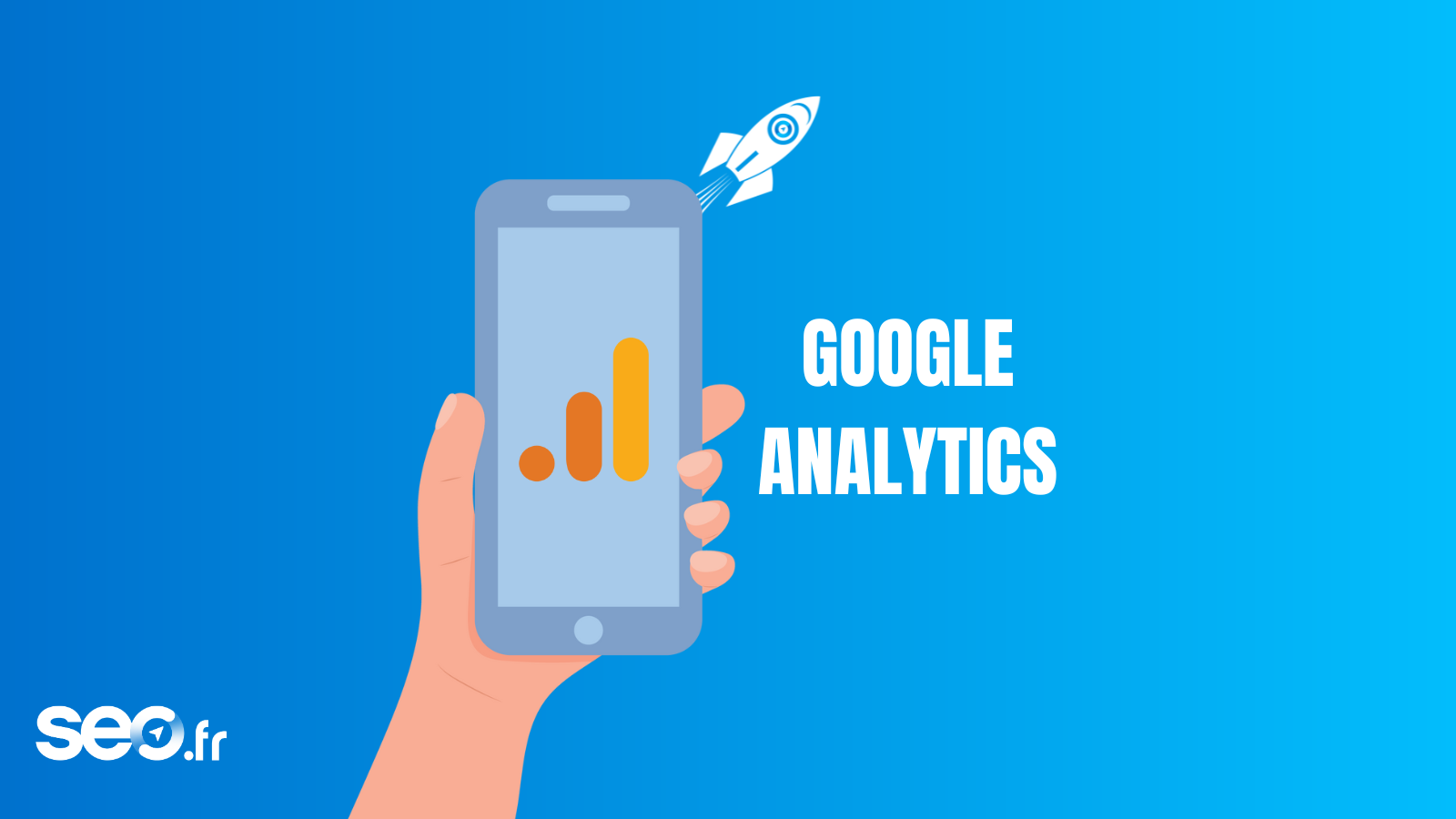What is the role of Google Analytics?
Google Analytics is Google’s statistical tool, which enables all website administrators to analyse their audience. Completely free of charge, it was introduced by the American company in March 2005. And if it is now used by more than ¾ of the international market, it’s because it’s so easy to use and understand, but also because the statistics it provides are so many and so useful.
As well as providing graphical and numerical trends in a site’s audience, Google Analytics reports are also a powerful audience measurement tool. It gives you a complete overview of visitor behaviour: source of traffic, bounce rate, conversion rate, time spent on the site, unique visitors, etc. You can even see your direct traffic!
The benefits of using Google Analytics
Your objectives are specific to your business and Google Analytics allows you to track your traffic via personalised reports and key performance indicators (KPIs). The only prerequisite for using this extremely powerful tool is to have a Google account.
Google is a veritable mine of information and has many advantages.
You have a view of :
- Number of visitors ;
- Bounce rate (%) ;
- Number and duration of sessions;
- User profile;
- Pages consulted;
This fantastic free tool provides a very detailed analysis of your site’s results in terms of general traffic. The more you know about your audience and their preferences, the more you’ll be able to tailor your content to their desires. If you have an e-commerce site, you’ll be able to configure your funnel or conversion tunnel in a more relevant way and increase your sales. Google Analytics is therefore a marketing tool that you would be wrong to ignore.
How does Google Analytics work?
Google Analytics analyses your traffic using a unique tracking code that you install on each page of your website (you can customise it even further with Google Tag Manager).
This code is in fact an extract of Javascript, which is executed in the user’s browser when they visit your pages.
Google Analytics therefore integrates lines of tracking code (tags) into the code of your website. It is thanks to this code that all the activities on your web pages, as well as the characteristics (attributes) of your visitors, are recorded on the Google Analytics server. The tracking data collected is then organised on several levels.
Do you have an Analytics question?
Julia can help
8 years’ expertise in Webanalytics

Improve my conversion process
Google Analytics is an extremely powerful tool if configured and used to its maximum potential.
You can accurately track all your marketing campaigns (SEO, SEA, Advertorials, Offline Advertising), and measure the return on each one. You can also track the number of interactions (visits) it took to achieve an objective (such as an order on your e-commerce site, for example). Find out more about our web analytics agency.
In the example above, we see that only 18.79% of users order on their first visit to the site. We can draw the following conclusions:
- 81% of my users need to have several interactions with my site before ordering.
- They won’t necessarily use the same source of traffic or the same advertising, but may come back via the newsletter or SEO…
- When the user achieves their objective, each of the channels they have used must be able to receive a share of the sales generated in order to calculate their real profitability. Without this configuration, only the last channel will receive 100% of the value of the conversion, and will take all the credit, which is not real.
How to use Google Analytics like a professional
So we’re going to implement precise configurations to track every channel , every ad , every publication through ad tracking, tracked URLs and custom channel groups. Thanks to this, Google Analytics will give you an accurate picture of spend and revenue for each channel.
There are various functionalities:
Dashboard
You can view the results of the last 7 days on the dashboard:
- Number of visitors ;
- Number of sessions ;
- Bounce rate ;
- Session duration;
- Live visits.
Traffic channels
- Organic ;
- Social media ;
- Direct (the surfer searched your site directly);
- Referring (via an external link) ;
- Other (emailing, tags).
Audience
- Overview: you can choose the analysis period and add annotations;
- Interests: get to know your audience;
- Geographical data: where are your visitors?
Acquisition
This feature lets you see where your traffic is coming from: organic, social networks, direct, etc.
Behavior
- You see what visitors are looking at first;
- Understand which web pages are the most popular in terms of traffic;
- You can target the behavior of web users, the way they navigate on your site.
In the initial Google Analytics configuration, conversions are attributed entirely to the last interaction (the one that converts). It’s legitimate to think that conversions might never have happened without SEO.
Monetize your traffic with Google Analytics and SEO.fr
Are you an entrepreneur looking for an overview of the effectiveness of your campaigns, the relevance of your traffic and the competitive potential of your website? SEO.fr can help.
Going further with your data
If you’d like to turn your data into a dashboard to run your website professionally, we can help.
You don’t need millions of visitors to learn how to set up or get help from a Google Analytics specialist. Request a sample report and we’ll help you create the customized dashboard your business needs.
Google Analytics certification
Want to master data analysis with free online courses?
Analytics Academy lets you learn how to use Google’s various measurement tools:
- Develop your business
- Implement intelligent data collection methods
- Data analysis









